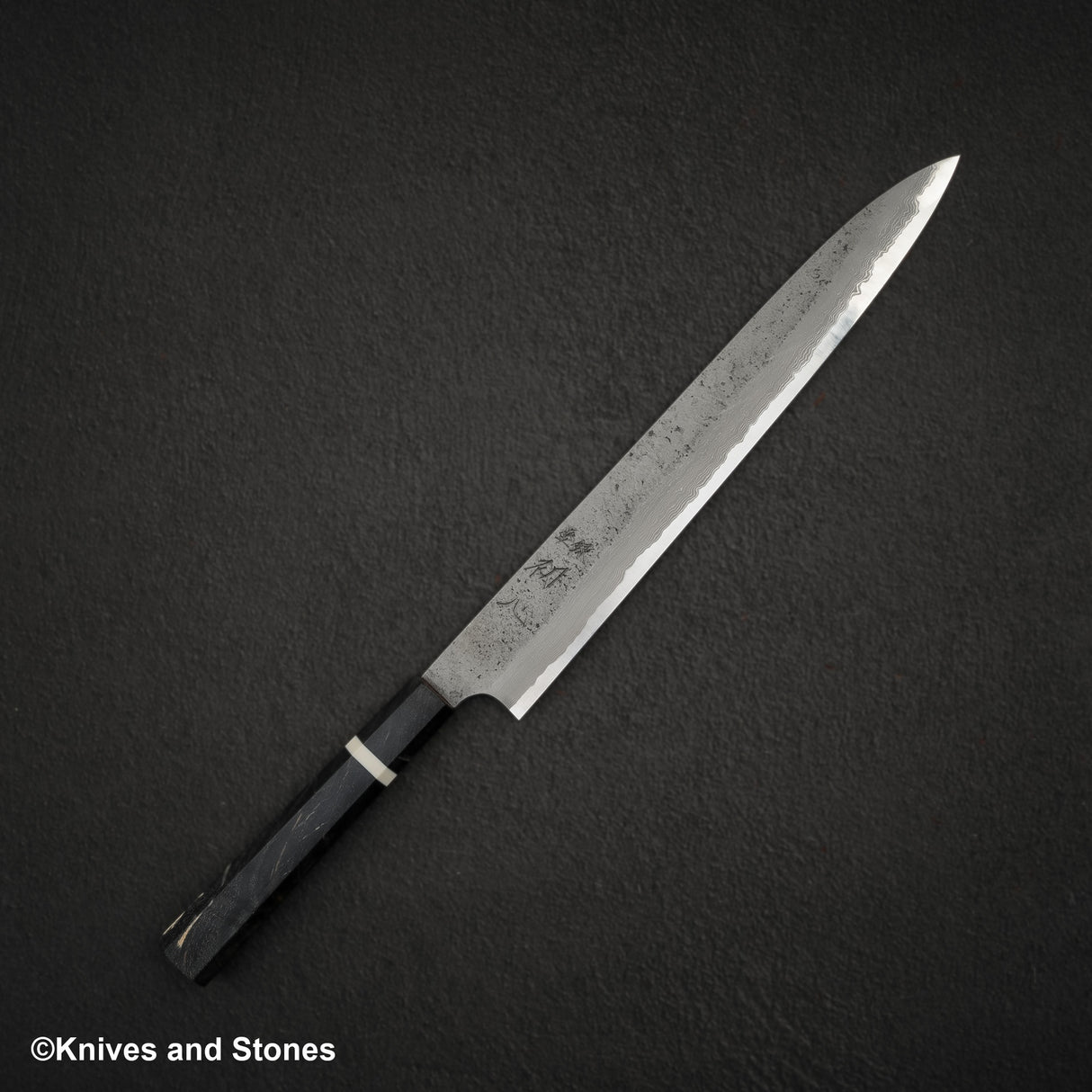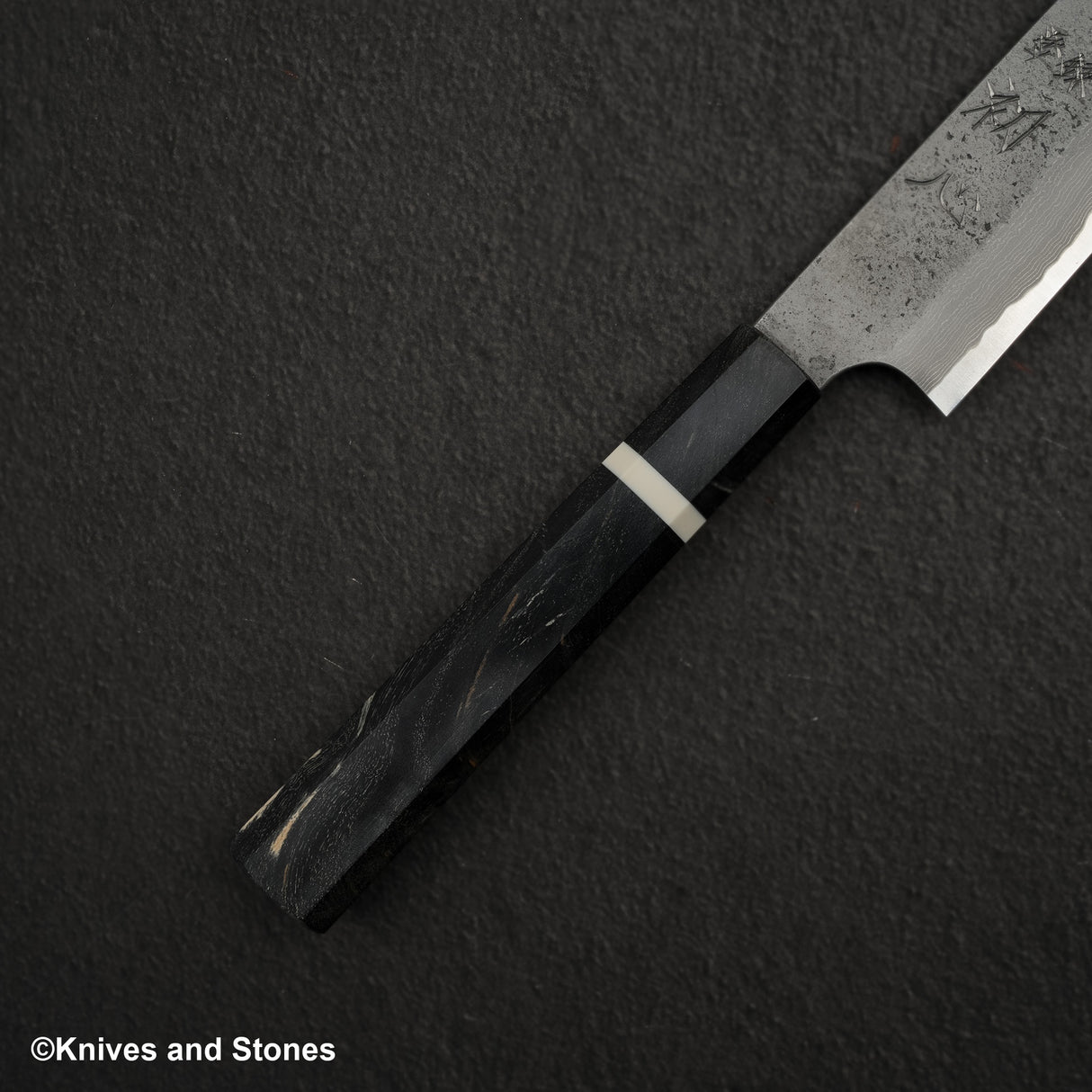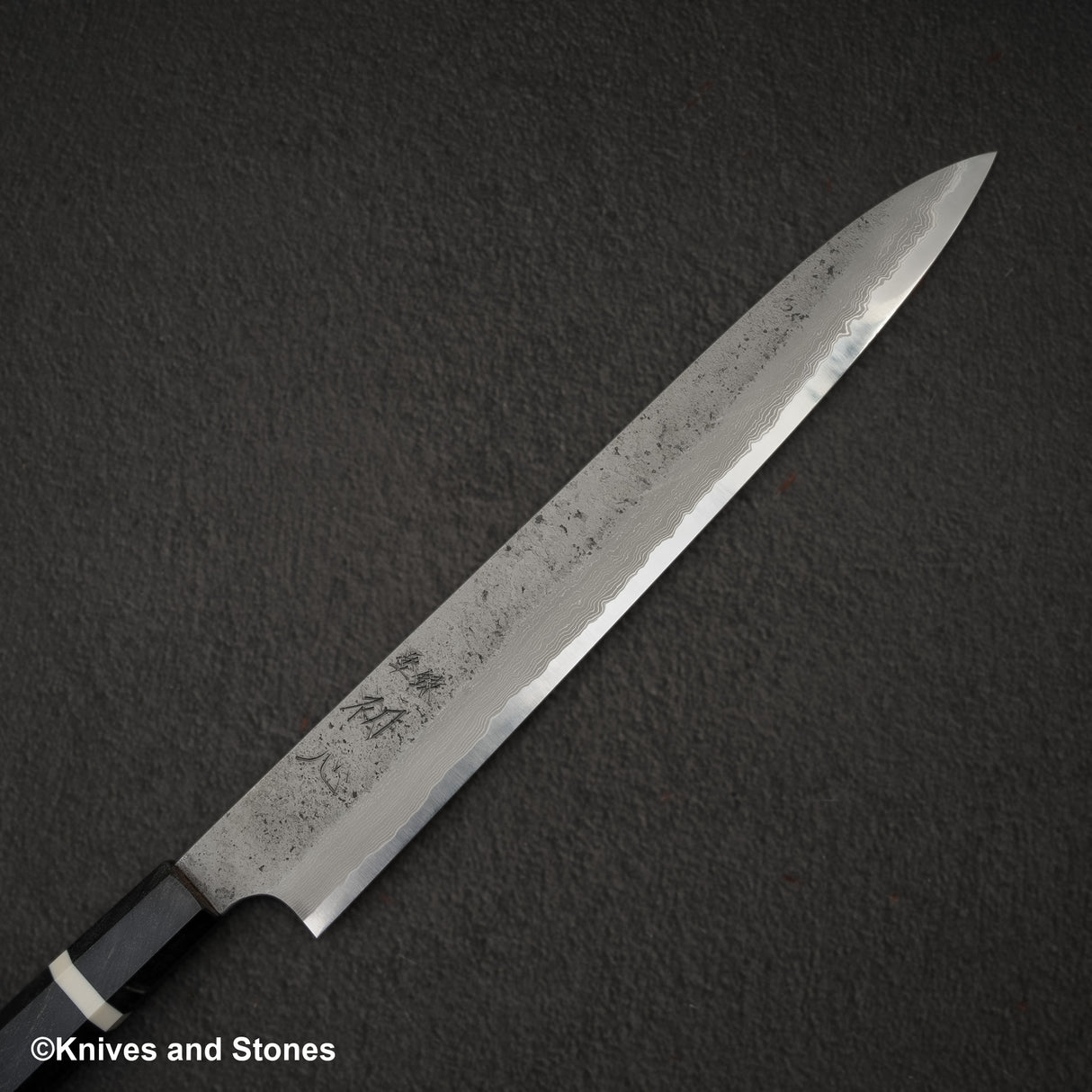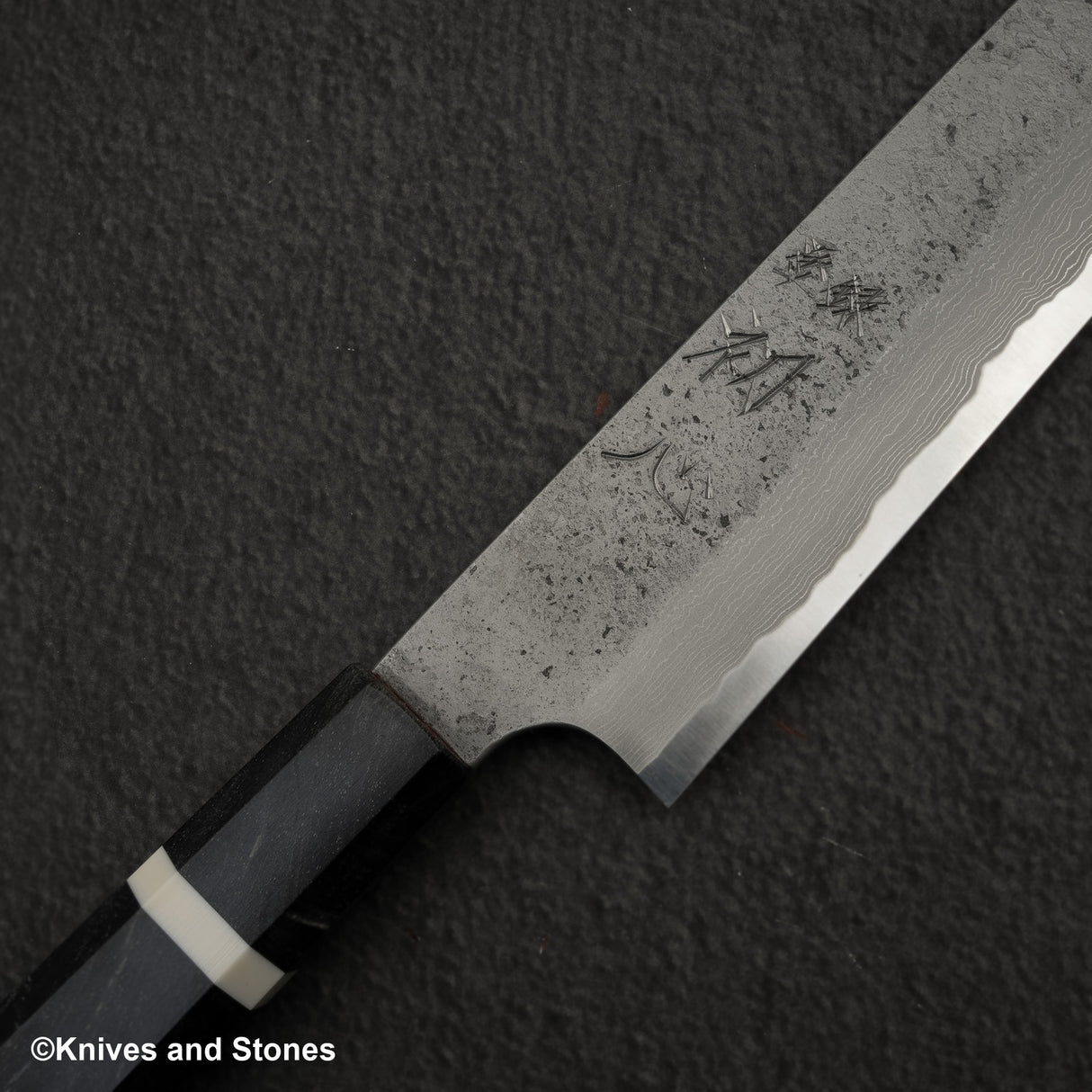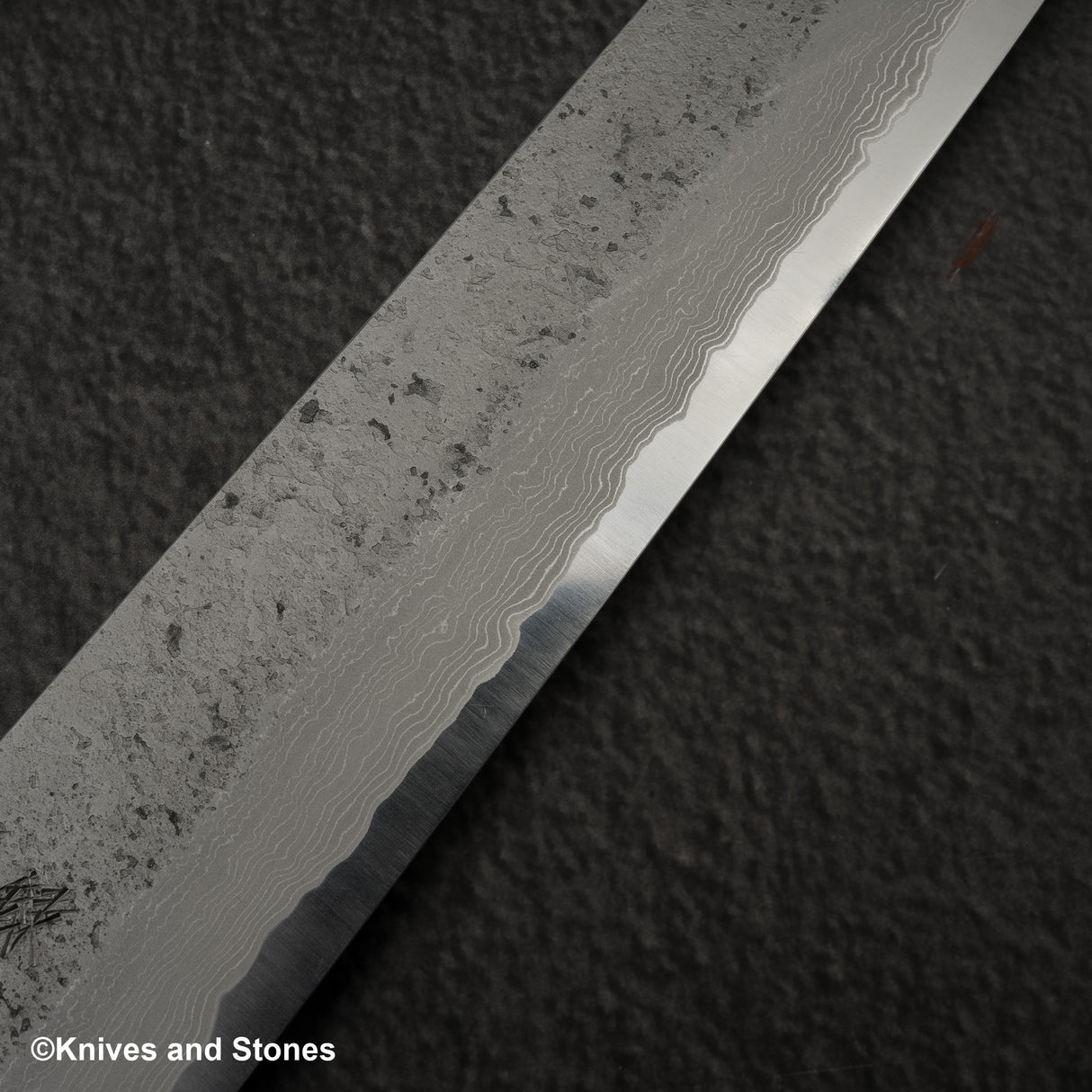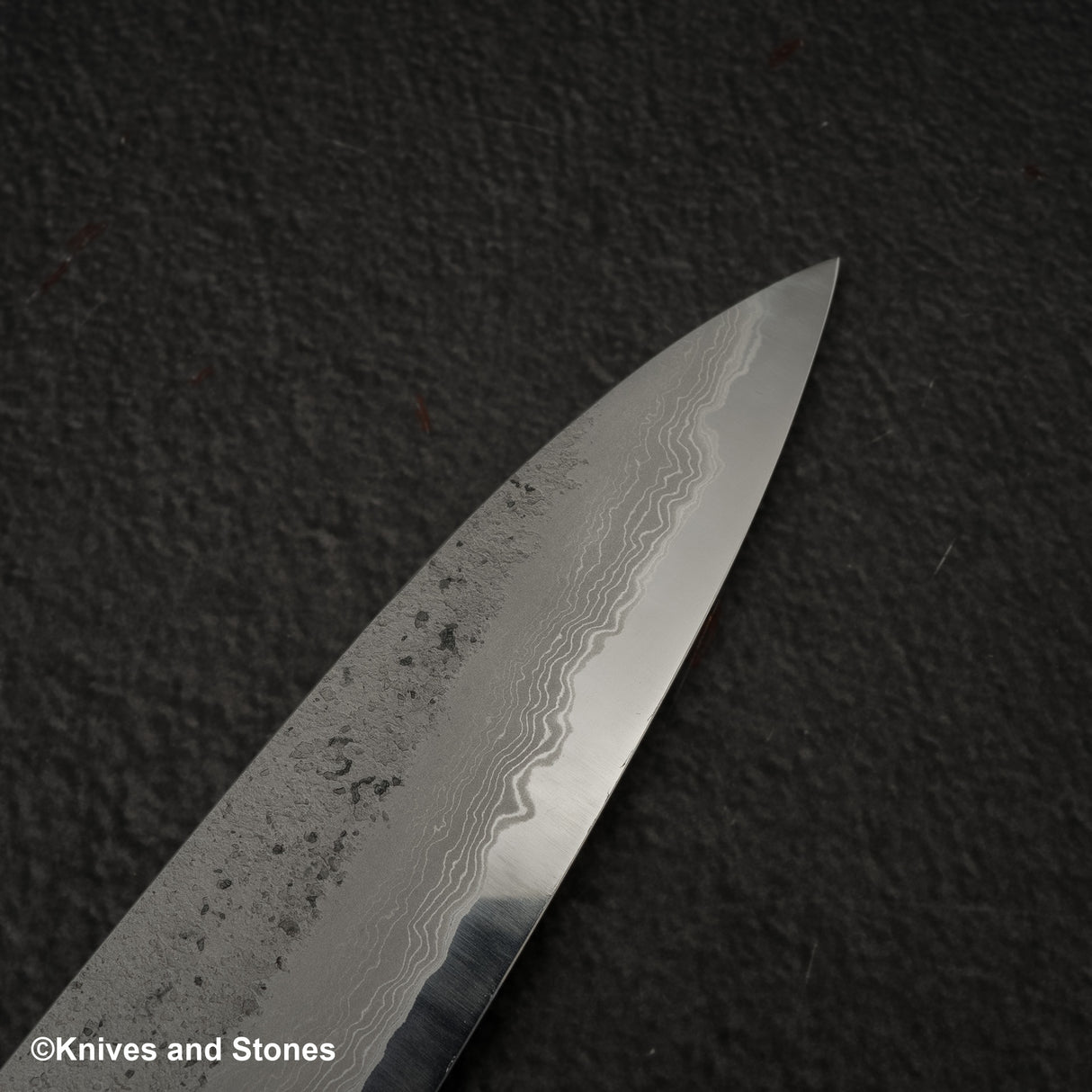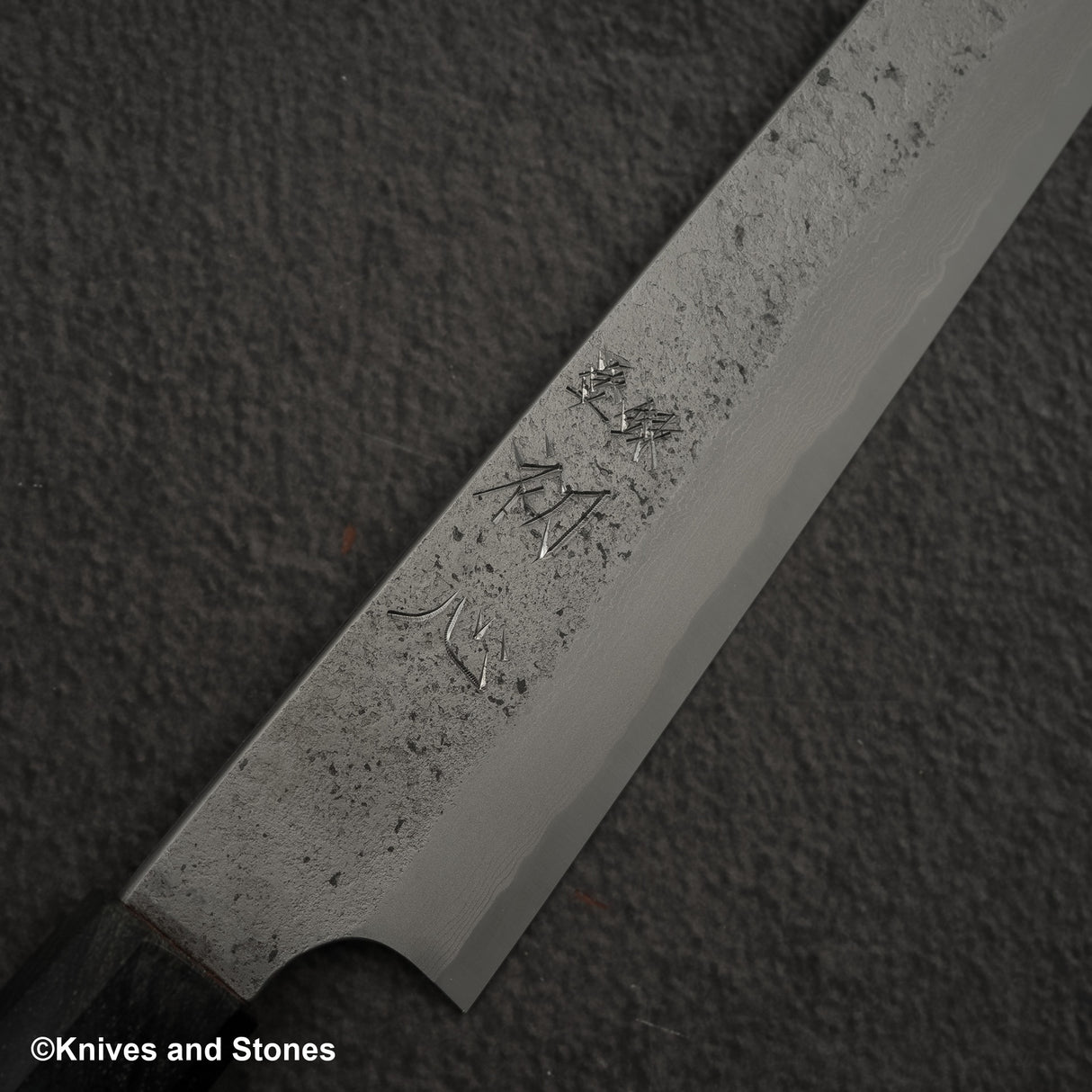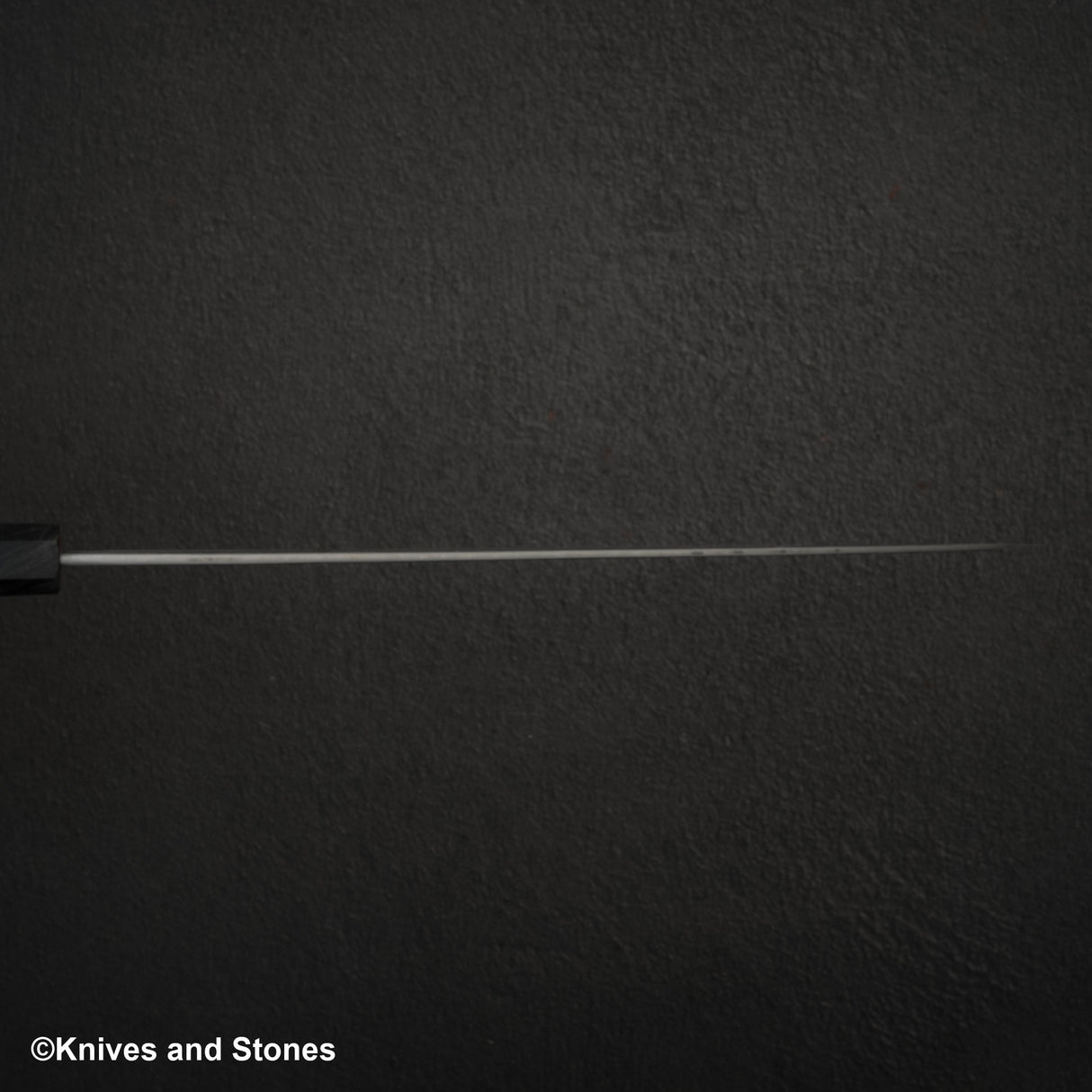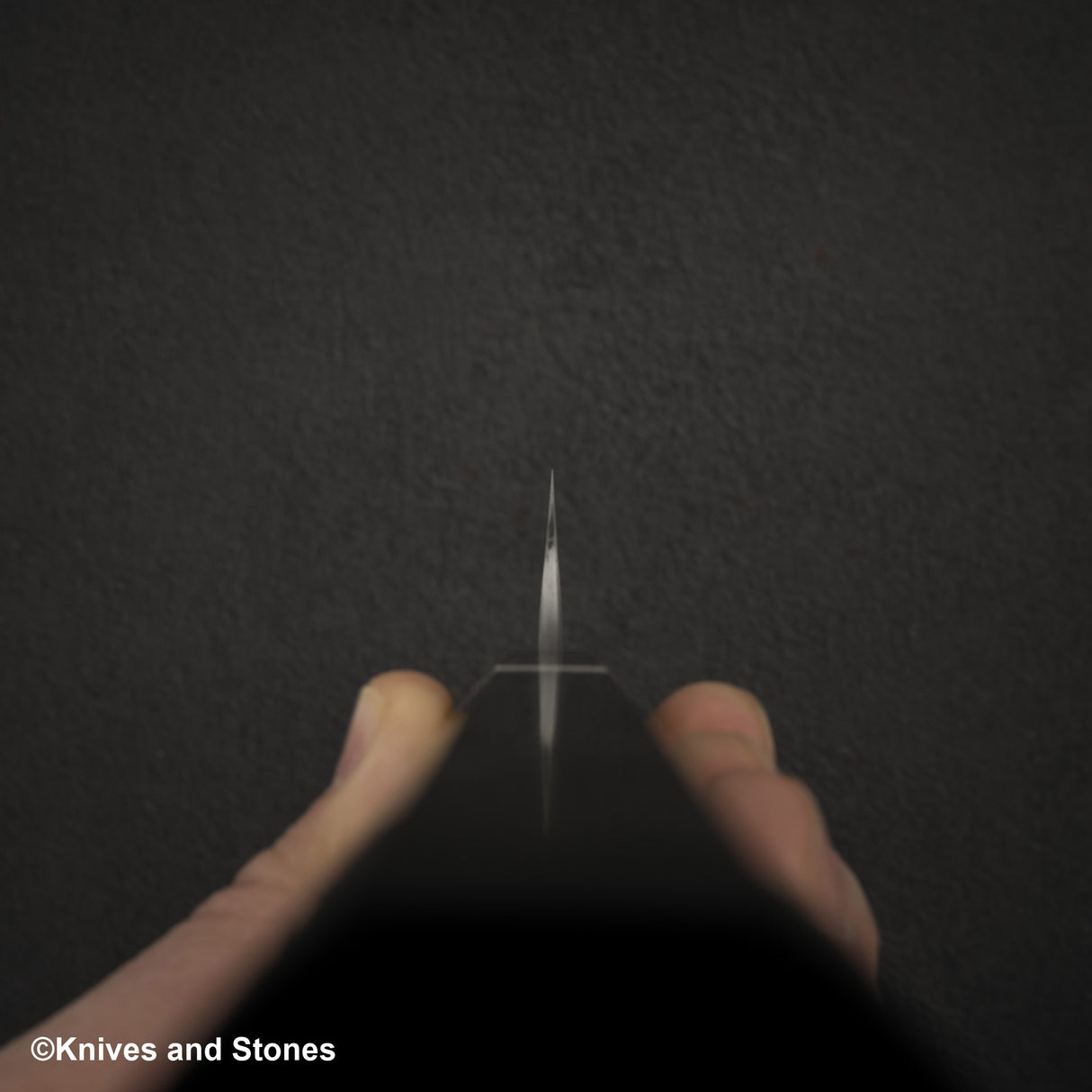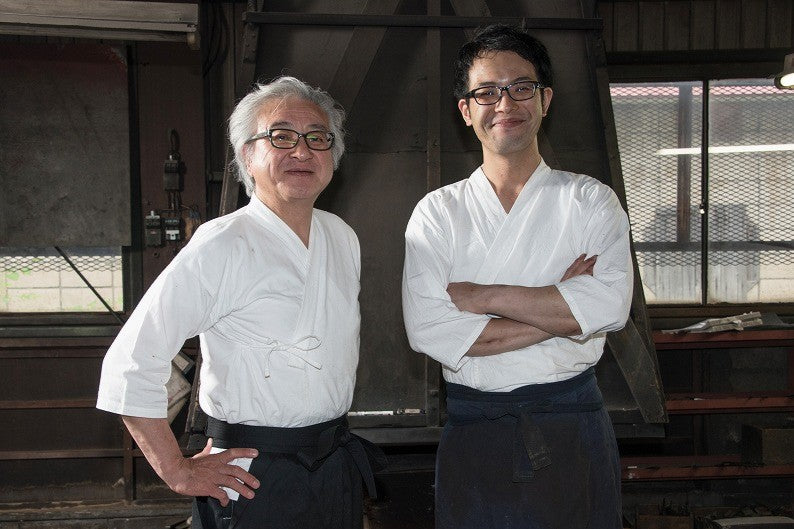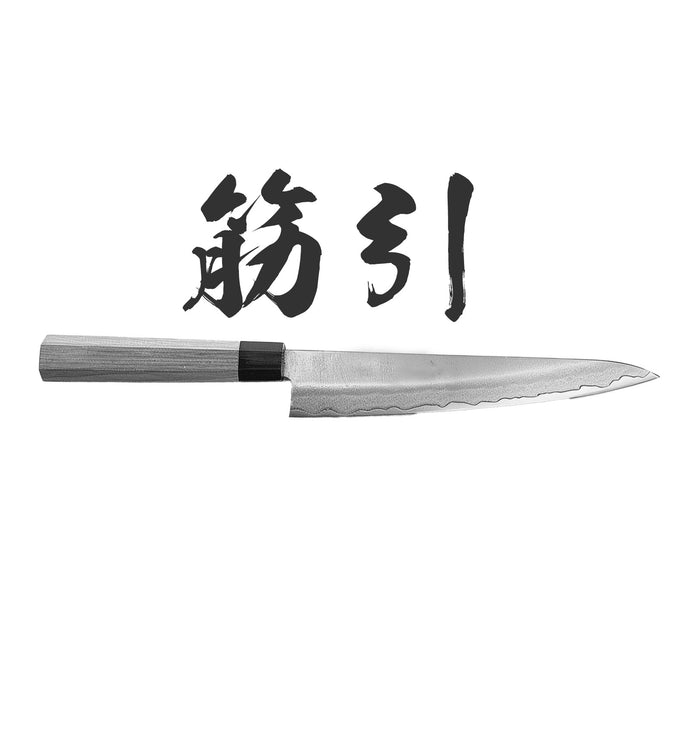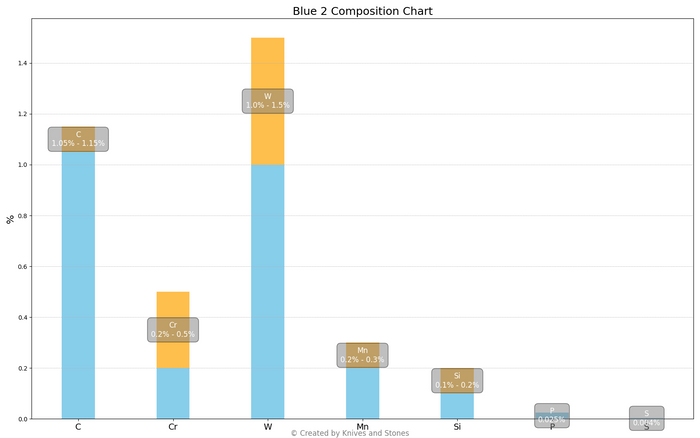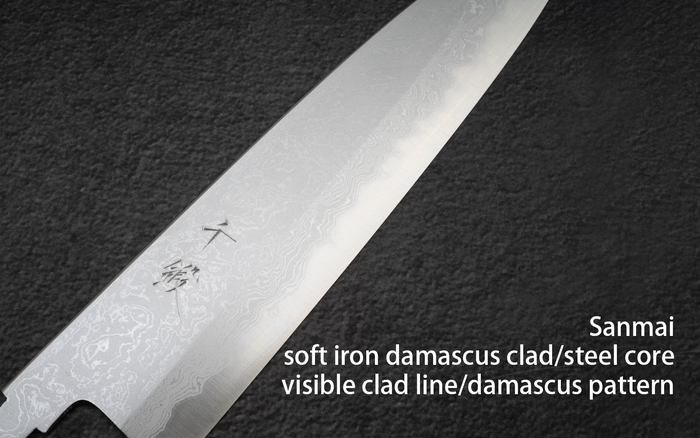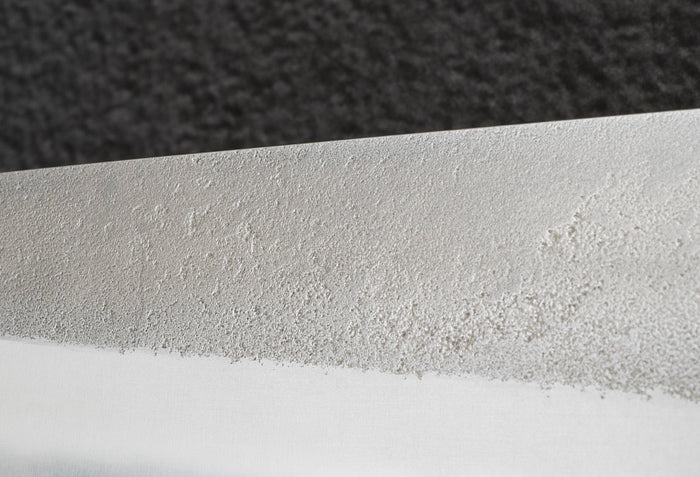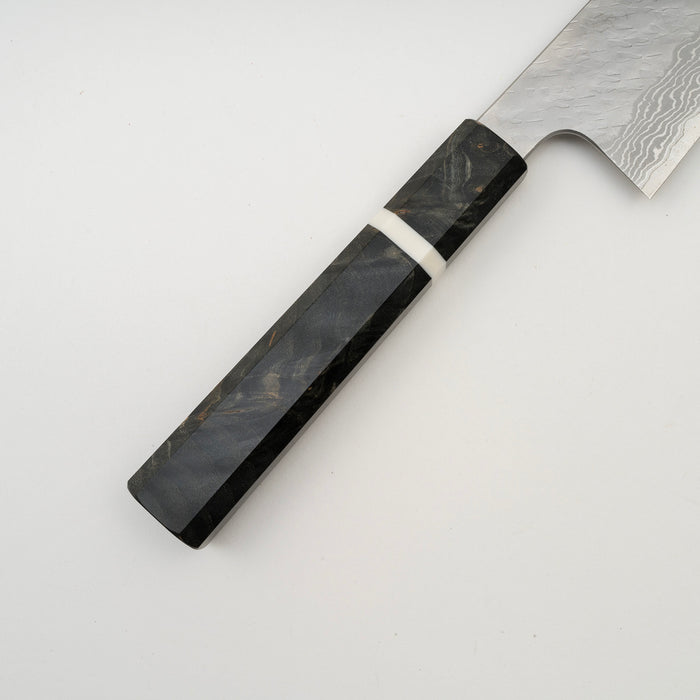Hatsukokoro Ryusui Blue 2 Nashiji Sujihiki 300mm
Hatsukokoro Ryusui Blue 2 Nashiji Sujihiki 300mm is backordered and will ship as soon as it is back in stock.
Couldn't load pickup availability
Detailed Specifications
| Line | Hatsukokoro Ryusui Blue 2 |
| Profile | Sujihiki / Slicer |
| Bevel Type | Double Bevel |
| Weight | 225 g 7.94 oz |
| Edge Length | 288 mm .11.34 inch |
| Heel Height | 40 mm .1.57 inch |
| Width @ Spine | 3.3 mm 0.13 inch |
| Width @ Mid | 2.5 mm 0.1 inch |
| Width @ 1cm from Tip | 0.7 mm 0.03 inch |
| Steel | Blue 2 / Aogami #2 | Carbon |
| Blade Construction | Sanami - Soft Iron Damascus Clad |
| Hardness (HRC) | 61 - 63 |
| Surface Finish | Nashiji |
| Handle | Octagonal Birch Burl with Spacer |
| Region | Aomori |
| Best for |
|

| Pros | Cons |
|
|
|
Care Instruction
- Don't cut hard things! Japanese knives are brittle so bone hacking is a NO NO!
- Wash with neutral detergent after use, and wipe dry;
- Please don't wash knife with dishwasher, it will damage the wood handle;
- Be careful not to leave the knife close to a heat source for a long time;
- It is a lot more dangerous to cut with a blunt knife than a sharp knife!
- It is best to sharpen a Japanese knife regularly on a waterstone.
- Oil the (carbon) knife if storing for an extended period of time to prevent rust.

